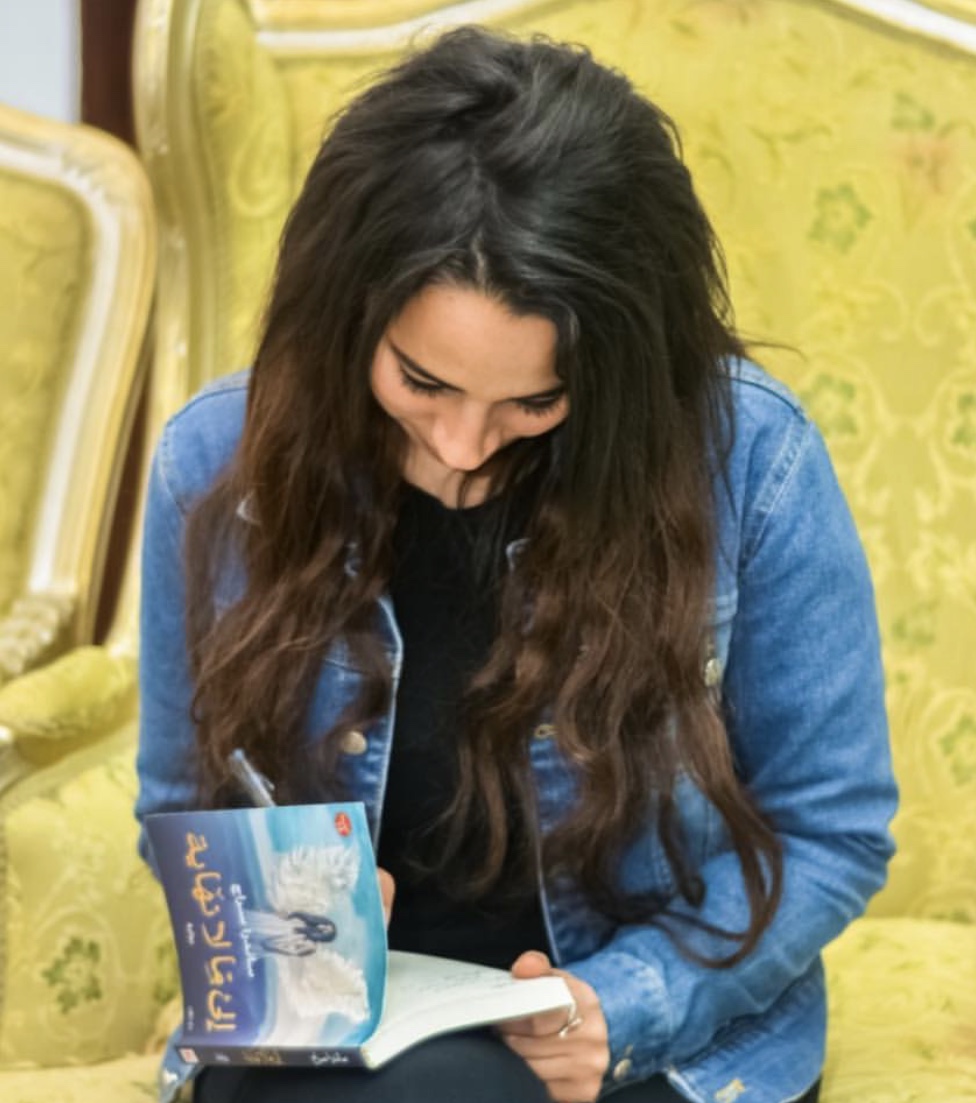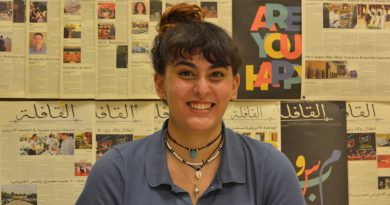AUCians Design Eye Diagnosis App
Hayam Mahran
@hayamabdallahh
Photo Courtesy of Yasmina Halbouny
An AUC group of five juniors beat out 50 other teams to win first place in the AUC Student Union Real Life Globe Competition by creating an application called “Besta” which diagnoses eye conditions.
The team – composed of Political Science junior Amina El-Agha, Finance junior Mohamed Mansour, Engineering junior Yasmina Halbouny, Economics junior Ali El-Banbi, and Engineering junior Tamer Osman – won the top prize of $3,500 to help fund their application which helps diagnose two eye diseases: Glaucoma and diabetic retinopathy.
Glaucoma is an eye disease that damages the eye’s optic nerve which connects the retina to the brain. Diabetic retinopathy is a complication of diabetes that is caused by high blood sugar levels which damage the retina.
The application works by taking a picture of the retina through an external lens that is placed on the phone’s camera. Once the picture is taken, it is then sent to an ophthalmologist who makes a diagnosis.
The retina plays a critical role in eye functions, as it processes material such as color and light-intensity and sends this information to the brain. Damage to the retina can result in blindness.
Besta is designed for use by people in rural areas who are unable to seek out adequate health care by connecting them with ophthalmologists who are in a different geographic area.
“We thought of creating an application to provide free and easy check-ups to determine whether a person does not have any of these diseases or will need further diagnosis,” El-Agha says.
El-Agha says these eye diseases show no symptoms in the initial stages but that these develop over time, which may be too late as the person could have already lost a part of their vision. By creating this application, El-Agha and her team hoped that they could ensure that diagnoses are made sooner and that early intervention can take place.
“Check-ups are not easy in rural areas because there are not enough available doctors and the costs for doctor visits are relatively high, so we want to offer some type of medical care for people who can’t access it,” Mansour said.
By using Besta, nurses at primary health care units would be able to take pictures and send them to any doctor in the application’s database to assess the patient’s case.
Halbouny told The Caravan that they plan on providing smartphones and lenses to primary health care units all over Egypt for free.
“Most people in rural areas don’t have smartphones, so that is why we provide the phones and lenses to the primary health care unit, and results will be sent as SMS to the patients,” El-Banbi added.
Among the challenges faced by the team was making the application accessible in Egypt.
“The price of the lens is high and not anyone can afford it, and it should be used in a professional way to get an accurate picture of the retina,” Halbouny said.
Another challenge the creators faced was coming up with a good idea to join the competition.
“We spent three days doing nothing but brainstorming ideas, and till we won we were not sure whether the idea was good enough or not,” Mansour told The Caravan.
El-Agha stated that they are planning to collect a database of photos and diagnoses to build a machine learning model that will be able to automatically diagnose a patient without needing a doctor.
The Life Globe Competition is an annual competition at AUC that allows different teams from Egypt to compete; however, this is the first time they included 50 teams from all over the globe, including Palestine, France, Italy, Lebanon and Australia.
The theme of this year’s competition was smart sustainability.




